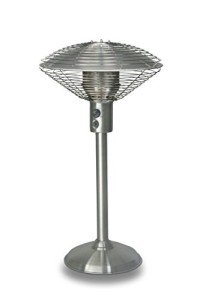Understanding Gas Heaters: A Comprehensive Guide
Gas heaters are an essential component of numerous homes, offering heat and comfort during the cooler months. With numerous types of gas heaters available, understanding their functioning, advantages, and security procedures is important for users. This post offers an informative summary of gas heaters, how they work, and addresses frequently asked concerns on the topic.
Understanding Gas Heaters
Gas heaters run by burning natural gas or propane to produce heat. They are utilized to warm indoor areas and are frequently thought about more efficient than electric heaters. The main types of gas heaters include:
Types of Gas Heaters
| Type | Description |
|---|---|
| Gas | Linked to a gas line and offers continuous heat supply. |
| Propane | Uses propane tanks, making it ideal for locations without gas lines. |
| Unvented | Burns gas without a vent system, suitable for well-ventilated spaces. |
| Vented | Expels combustion gases outside, perfect for keeping indoor air quality. |
Each type has its distinct advantages and applications, making them ideal for different environments and choices.
How Gas Heaters Work
Gas heaters typically make use of a mix of burners, heat exchangers, and blowers to disperse heat efficiently. The process generally includes:
- Ignition: Natural gas or propane is sparked either via a pilot burner or an electronic ignition system.
- Combustion: The gas burns, creating heat which is then transferred to a heat exchanger.
- Heat Distribution: A blower or fan disperses the heated air throughout the space, developing a comfy environment.
- Exhaust: In vented systems, exhaust gases are expelled outside, maintaining security and preventing toxic buildup inside.
Benefits of Gas Heaters
Gas heaters offer various benefits that make them a popular choice for heating spaces. Some of the key advantages consist of:
- Energy Efficiency: Gas heaters normally supply more heat per system of fuel compared to electric heaters, making them an affordable heating option.
- Quick Heating: They heat up spaces quickly, supplying instant heat when switched on.
- Ecologically Friendly: Natural gas is cleaner than coal and is thought about a more environmentally friendly alternative than electric heating in numerous areas.
- Dependability: Gas heaters can continue to operate during power blackouts, making sure continued comfort during serious weather.
Downsides of Gas Heaters
While gas heaters have many advantages, there are likewise some drawbacks to think about:
- Installation Cost: The preliminary setup expense for gas lines or propane tanks can be high.
- Security Risks: There are inherent risks associated with gas leaks and carbon monoxide gas poisoning, requiring cautious installation and maintenance.
- Space Requirements: Some kinds of gas heaters (especially vented ones) require considerable space for setup and exhaust systems.
Maintenance Tips for Gas Heaters
Proper upkeep is necessary for guaranteeing the security and performance of gas heaters. The following pointers can assist preserve optimum efficiency:
- Annual Inspections: Have a qualified service technician examine the gas heater yearly to inspect for leaks and guarantee correct performance.
- Tidy the Heater: Regularly clean the heater and surrounding location to prevent dust accumulation, which can impact efficiency.
- Inspect Vents: Ensure that all vents are unblocked and operating properly to avoid accumulation of hazardous gases.
- Screen for Smells: Any unusual smell, particularly gas, need to be attended to instantly by getting in touch with an expert.
Frequently Asked Questions about Gas Heaters
Q1: Are gas heaters safe to utilize inside?
Yes, gas heaters can be safe for indoor usage as long as they are appropriately installed and kept. Vented gas heaters are especially safe since they expel combustion gases outside, lowering the threat of carbon monoxide gas poisoning.
Q2: How can I tell if my gas heater has a gas leakage?
Indications of a gas leakage consist of a foul odor resembling rotten eggs, hissing noises, and dead vegetation around the area. If you believe a gas leakage, it is crucial to evacuate the facilities right away and contact your gas supplier.
Q3: Do gas heaters require a power source?
The majority of gas heaters do not require electrical power to operate, especially those that rely on gas. Nevertheless, designs with fans or electronic ignition systems will need a power supply.
Q4: What should I do if I smell gas near my heater?
If you smell gas, you need to immediately leave the location, prevent using any electrical gadgets, and call your gas service supplier or emergency situation services from a safe range.
Q5: What is the life-span of a gas heater?
Typically, gas heaters have a lifespan of 10 to 15 years with appropriate upkeep. Regular examinations can help extend their functional life.
Gas heaters can be an efficient and trusted way to keep homes warm and comfy throughout winter months. High-Quality Heaters and advantages accommodate various needs and preferences. Nevertheless, understanding their performance, potential security issues, and upkeep requirements is crucial for any homeowner thinking about or presently utilizing gas heating. By following finest practices and staying notified, users can take pleasure in the heat and effectiveness of gas heaters for many years to come.

